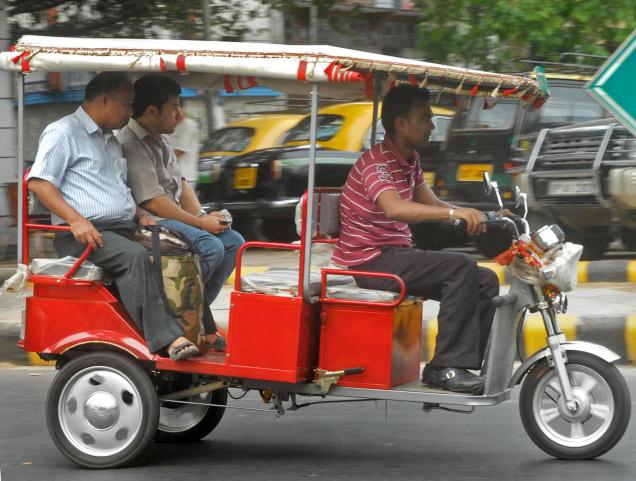The move of introducing e-rickshaw daily transport will work towards the extricating the inhuman practice of human beings pulling another. Nitin Gadkari, Minister for Road, Transport & Highways, recently saw a modified e-rickshaw in Transport Bhawan. The minister finally gave the go ahead on the first model of e-rickshaw. This will really significantly change and better the conditions on the roads with regard to safety and other human resource concerns. Safety has been a concern for e-rickshaws plying in Delhi and Delhi High Court has issued show-cause notices against increasing number of e-rickshaws running rampant on city roads.
Erickshaws could be indespensible in carrying passengers and goods and much better than the inhumane use of physical human labour used for centuries across India. Moreover, the Delhi E rickshaws will be available to the minority, SC, ST and OBCs at highly discounted rates by select welfare organizations.
The Court had earlier asked the government authorities to allow e-rickshaws on the roads of Delhi barring in the case of legislative changes relevant to operational regulations. Delhi Police too has been interrogated in this regard, and are to reply back within 4 weeks and a hearing is scheduled on December 18.
For battery-operated rickshaws to be actually operational, the court wishes registration, release of permits, insurance, and driving licences. Existing ban on e-rickshaws remains in place under existing laws until the above mentioned regulations are dealt with.
Despite the prohibition that came into effect on July 31st, e-rickshaws continued to run on Delhi streets with no real action by state police. Transport Ministry notified the Police with regard to e-rickshaws in October, and also invited reasons against it.
The action this month by Nitin Gadhkari can be seen as a move to make the commuter’s safety a primary priority. Ministry agreed to plying of e-rickshaws on city roads in a notification to Central Motor Vehicles (Sixteenth Amendment) Rules, 2014, under the clause for ‘special purpose battery operated vehicles’. Under revised rules, an e-rickshaw can carry four passengers, without counting the driver and 40 kg luggage, and e-carts can transport goods up to 310 kg. The newly built e-rickshaw or special purpose battery operated vehicle is purposed to provide “last mile connectivity” for passengers as hired or rewarded. The Maximum power of the vehicle does not go above 2000 Watts and maximum speed is set at 25kmph.
image credits- The Hindu


